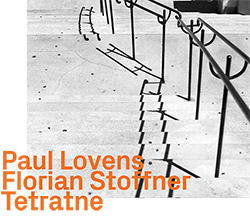
Captured live in Ljubljana during the 2019 "Sound Disobedience Festival", European Free Improv legendary drummer Paul Lovens co-composed this work with Swiss guitarist Florian Stoffner, "Tetra" referring to structures of 4, as in their 4-part improvisation with each player using all 4 limbs in a remarkable dialog of time, tone, technique, and nearly telepathic intention.
In Stock
Quantity in Basket: None
Log In to use our Wish List
Shipping Weight: 3.00 units
EU & UK Customers:
Discogs.com can handle your VAT payments
So please order through Discogs
Sample The Album:
Paul Lovens-drumset, cymbals, gongs
Florian Stoffner- electrified guitar
Click an artist name above to see in-stock items for that artist.
UPC: 752156102625
Label: ezz-thetics by Hat Hut Records Ltd
Catalog ID: ezz-thetics 1026
Squidco Product Code: 29655
Format: CD
Condition: New
Released: 2020
Country: Switzerland
Packaging: Cardboard Gatefold
Recorded live in Ljubijana, Slovenia, on March 22nd, 2019, by Iztok Zupan-Klopotek.
"It should be clear that in improvised music anything can happen. However, narrative coherence is only attained when events find their place in the time-line. A mystic might say the sounds are only there to map the silences between them, to generate an inaudible counterpart which is then the real music.
I will take this opportunity to reclaim a story, which is now going the rounds unattributed, concerning the late Numa(r) Lubin (aka Libin, Labinsky) who was the spiritual father of Nimbus Records - (an aside - a quote that Paul Lovens always enjoyed was something I overheard Numa say to his partner Gerald Reynolds, "We never liked stereo did we Gerald?". Nimbus developed a surround sound system called Ambisonics but let that pass you by...)
I was interested to hear Numa speak of a time, probably in the 1940's, when he lived in the same apartment building in Paris as Sydney Bechet. Recalling Numa's words, "Sydney used to practise his scales and arpeggios every day for an hour or so, but then for ten more minutes he would make strange animal sounds, bird songs and growlings. I wanted to know why he did it. His answer was,'Well Numa, I have long thought that what we call music is not the real music'. ".
Here, in the obscurely named "Tetratne", we have a music that is real in both these ways. Of course in order that is real in both these ways. Of course in order to make time fly, in other words "to raise the bandstand" as Monk put it to Lacy, there has to be a shared understanding. Is it going too far to add Monk's other rule, "Make the drummer sound good."?
Whether this essentially telepathic communication needs to be called a "language" or not raises interesting questions about the relationship between thought and language. To make the analogy with conversation is very tempting, especially for duo music. But this is a weak analogy; perhaps the shred of truth that it conveys is at the level of shared understanding. The miraculous nature of the "conversations" here is that they are perceived as a single simultaneous two-minded statement. As the cliché has it, "to be on the same wavelength". Given the presupposition that telepathy is involved, however deeply in the subconscious, and that these brain states are also electrical, then wavelengths are indeed involved but perhaps they are entrained in some way, like the multiplex signals that allow signals to pass in both directions down the same cable.
Consider the number of cables that this music, transformed to voltage, to digits and back to the sound you hear; and yet what you hear is clearly Paul Lovens and a drum kit (the nature of which I may come back to), and Florian Stoffner playing amplified guitar with some effects pedals (the nature of which I may come back to). I say "clearly" but of course this assumes you know something of their previous work, both together as a duo and in other contexts. In fact the more their combined and separate histories are known, the clearer their identities will be. In the well worn cliché they each have their "sound" - and unmistakeable at that.
It might be that the "art of the individual" in this case consists of remaining perfectly identifiable and yet playing duo music. The fact of being identifiable is the easier of the two factors in this equation.
Now this thought/language business in the specific realm of freely improvised music requires a weasel's resort to the old but evergreen, "Well, it all depends what you mean by "thought"... "language"..."free"..."improvised"..."music"... In his book, "Taking Appearances Seriously: the dynamic way of seeing in Goethe and European thought.", the late Henri Bortoft quotes the response from Bryan Magee to the rather unambitious insight of philosopher A.J.Ayer, "The world is the world as we describe it.". Magee's response "If it were so we could describe the taste of boiled potatoes in such a way that anyone who had not tasted them would know the taste from the description." Without underestimating the powerful flavour of Leopold Bloom's kidneys... I think we have clarified the limits of my role here! He who tastes knows.
Thought works faster, much faster than its verbal expression. Intutition (thanks Lenny) is anticipatory "thought", impossible to slow down to the speed of verbally articulated thought. Neither player here is concerned with the tongue in the way that a saxophonist is, but it does not stop either of them at times "speaking in tongues" in the sound world beyond the speed of clear articulation, a suggestion of the impossibility of marking the smallest conceivable increments of the time-line. Impressionism is not just for painters.
I said I might come back to the subject of the drum set and guitar. It is surely significant that both Lovens and Stoffner use all four limbs to control their instruments. Lower limbs used principally to play bass drum and hi-hat in the case of Lovens, volume control and effects pedal for Stoffner. Right and left limbs, right and left brain hemispheres. It is not surprising that there is plenty going on in their music.
"Whatever happened to the Art of the Individual?!" Han Bennink once asked rhetorically to a crowded backstage. Well here it is, alive and well and on stage for 35 minutes in Ljubljana. Time travel for those who were not there but are there now."-Evan Parker, May 2020

The Squid's Ear!
Artist Biographies
• Show Bio for Paul Lovens "Born in Aachen, Germany, 6 June 1949; Drums, percussion, musical saw, etc. Paul Lovens played the drums as a child. Self-taught, from the age of 14 he played in groups of various jazz styles and popular musics and from 1969 has worked almost exclusively as an improvisor on individually selected instruments. He has worked internationally with most of the leading musicians in free jazz and free improvisation, among whom have included the Globe Unity Orchestra, the Berlin Contemporary Jazz Orchestra, the Schlippenbach trio, Quintet Moderne, Company, and a duo with Paul Lytton. He has undertaken concert tours in more than 40 countries, is a founder member of a musician's cooperative and has produced recordings for his own label, Po Torch Records since 1976. He has worked with painter Herbert Bardenheuer. Despite very rare solo performances, and although giving occasional concerts with ad-hoc groups and an involvement in projects with film, dance and actors, Paul Lovens' main interest and work is musical improvisation in fixed small groups. In the mid-1990s these small groups numbered around 16, of which a few were part of a special selection, called 'vermögen'. Paul Lovens somehow epitomises the free drummer/percussionist who is not there to lay down the beat and kick everyone else into action but to listen, colour, contribute, guide, and occasionally direct, the overall cooperative sound. In concert one cannot fail to be moved by his intensity and concentration and there is an overiding feeling that even the most random events are somehow planned in time. In this respect, there is a nice irony that on the Nothing to read CD with Mats Gustafsson, Lovens describes his kit as consisting of 'selected and unselected drums and cymbals'. Miking seems to be a problem at times with some recordings giving him undue prominence and others insufficient. Good recordings are Elf bagatellen, Nothing to read, Pakistani pomade, and ,stranger than love." ^ Hide Bio for Paul Lovens • Show Bio for Florian Stoffner "Florian 'Flo' Stoffner ( 1975 ) is a Swiss jazz guitarist and composer. Stoffner made his first experiences through performances with Harald Haerter and Erik Truffaz , including at the Lugano Festival. From the beginning of the 21st century he worked with musicians such as Marius Peyer ( Unsung Songs , 2000), Gitta Kahle , Christian Weber , Lionel Friedli , Hans-Peter Pfammatter , Manuel Mengis ( Into the Barn , 2004), Christoph Grab and Hilaria Kramer. , and in the Fat Son, Lauschangriff, Lila and Science Fiction Theater groups. In 2012 he came with a solo album... and Sorry ( Veto Records ). With Paul Lovens and Rudi Mahall he recorded the trio album Mein Freund der Baum ( Wide Ear , 2017). In jazz, he was involved in 15 recording sessions between 1990 and 2011." ^ Hide Bio for Florian Stoffner
11/29/2024
Have a better biography or biography source? Please Contact Us so that we can update this biography.
11/29/2024
Have a better biography or biography source? Please Contact Us so that we can update this biography.
Track Listing:
1. Tetratne 1 15:00
2. Tetratne 2 5:45
3. Tetratne 3 9:23
4. Tetratne 4 4:12
Hat Art
Improvised Music
Jazz
Free Improvisation
European Improvisation, Composition and Experimental Forms
Saxophone & Drummer / Percussionist Duos
Duo Recordings
Hat Hut Masters Sale
Search for other titles on the label:
ezz-thetics by Hat Hut Records Ltd.

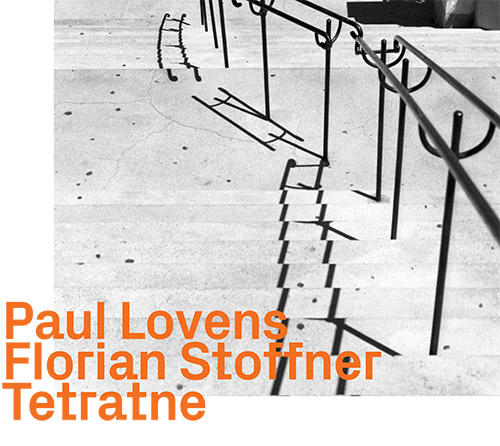


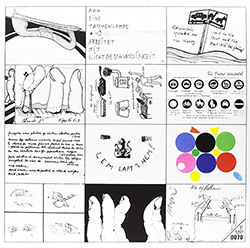
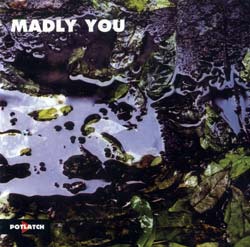
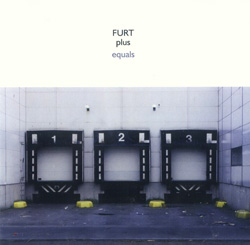


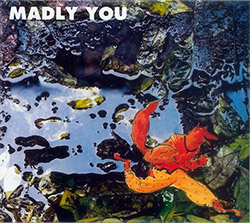



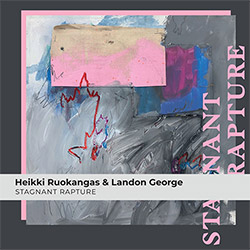

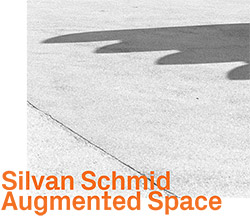



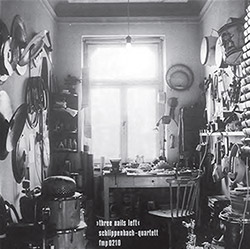
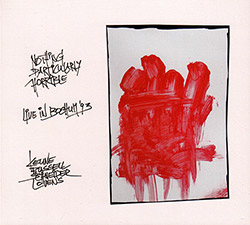

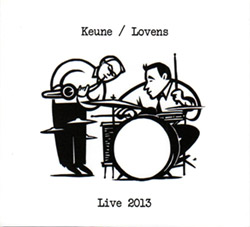
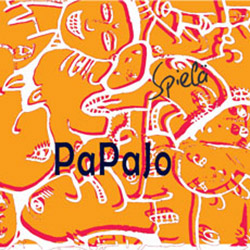
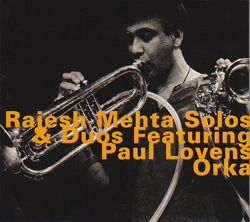
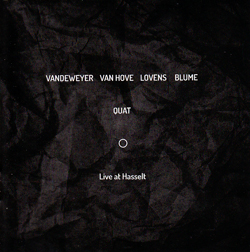
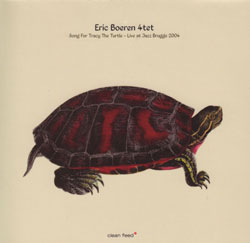
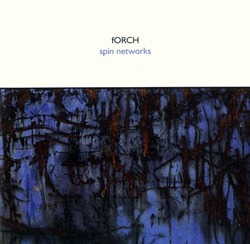




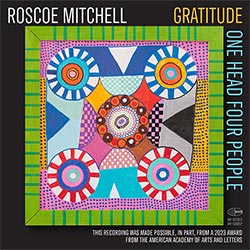
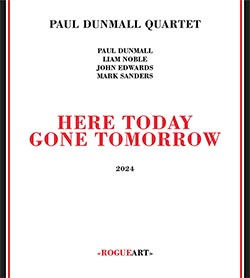
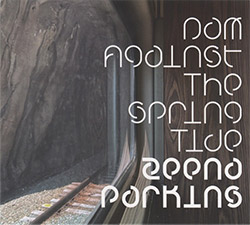
![Weston, Matt: Communism Has Appeared On The Scene [VINYL 2 LPs]](https://www.teuthida.com/productImages/misc4/35546.jpg)
![Coleman, Steve & Five Elements: PolyTropos / Of Many Turns [2 CDs]](https://www.teuthida.com/productImages/misc4/35476.jpg)
![Sorey, Tyshawn (w/ Diehl / Ragahavan): The Susceptible Now [DOUBLE VINYL]](https://www.teuthida.com/productImages/misc4/35477.jpg)


![John Coltrane Quartet (Coltrane / Tyner / Garrison / Jones): Impressions From Graz 1962, Revisited [2 CDs]](https://www.teuthida.com/productImages/misc4/35495.jpg)

![Guy, Barry / Ken Vandermark: Occasional Poems [2 CDs]](https://www.teuthida.com/productImages/misc4/34849.jpg)
![Novoa / Carter / Mela Trio: Vol.1 [VINYL]](https://www.teuthida.com/productImages/misc4/35236.jpg)


![Elephant9 : Mythical River [VINYL]](https://www.teuthida.com/productImages/misc4/34624.jpg)
![Evans, Peter (Evans / Eldh / Black): Extra [VINYL]](https://www.teuthida.com/productImages/misc4/35279.jpg)

![McPhee, Joe: Straight Up, Without Wings [BOOK]](https://www.teuthida.com/productImages/misc4/35454.jpg)
![Jeck, Philip: rpm [2 CDs]](https://www.teuthida.com/productImages/misc4/35455.jpg)









![Barker / Parker / Irabagon: Bakunawa [VINYL]](https://www.teuthida.com/productImages/misc4/35533.jpg)





![Blaser, Samuel / Marc Ducret / Peter Bruun: Dark Was The Night, Cold Was The Ground [VINYL 10-inch]](https://www.teuthida.com/productImages/misc4/35492.jpg)






![Warren, Kenny (Warren / Hoffman / Ellman): Sweet World [VINYL]](https://www.teuthida.com/productImages/misc4/35451.jpg)




![Blake, Ran / Dave Knife Fabris: Live Amsterdam 2006, First Visit [CD + POSTCARDS]](https://www.teuthida.com/productImages/misc4/35275.jpg)




![DNS: Taking Big Bites Of The Khandas Three Cafes Deep [2 CDs]](https://www.teuthida.com/productImages/misc4/35334.jpg)




![Cleaver, Gerald: The Process [VINYL]](https://www.teuthida.com/productImages/misc4/34966.jpg)




![Alva Noto: HYbr:ID II [VINYL 2 LPs]](https://www.teuthida.com/productImages/misc4/35201.jpg)

![Baron, Derek / Luke Martin: Distinct and Concealed [CASSETTE + DOWNLOAD]](https://www.teuthida.com/productImages/misc4/35079.jpg)

![Lyle, Erica Dawn : Colonial Motels [CASSETTE + DOWNLOAD]](https://www.teuthida.com/productImages/misc4/35080.jpg)









![Sanna, Claudio: Compositori Sardi Contemporanei II [2 CDs]](https://www.teuthida.com/productImages/misc4/35317.jpg)







![Zurria, Manuel: Fame di Vento [3 CDs]](https://www.teuthida.com/productImages/misc4/35167.jpg)

![Granberg, Magnus / Nattens Inbrott / Skogen: Holde Traume, Kehret Wieder! [2 CDs]](https://www.teuthida.com/productImages/misc4/35038.jpg)
![Frey, Jurg: Outermost Melodie [2 CDs]](https://www.teuthida.com/productImages/misc4/35039.jpg)

![Pavone, Jessica: Reverse Bloom [VINYL]](https://www.teuthida.com/productImages/misc4/34895.jpg)




![Modney (Modney / Wooley / Gentile / Roberts / Pluta / Symthe / ...): Ascending Primes [2 CDs]](https://www.teuthida.com/productImages/misc4/34852.jpg)







![Elephant9 with Terje Rypdal: Catching Fire [VINYL 2 LPs]](https://www.teuthida.com/productImages/misc4/35355.jpg)
![Deerlady (Obomsawin, Mali / Magdalena Abrego): Greatest Hits [VINYL]](https://www.teuthida.com/productImages/misc4/34876.jpg)




![Haino, Keiji: Black Blues [2 CDs]](https://www.teuthida.com/productImages/misc4/35109.jpg)



![Surplus 1980: Illusion of Consistency [CD]](https://www.teuthida.com/productImages/misc4/35069.jpg)
![Staiano, Moe: Away Towards the Light [VINYL + DOWNLOAD]](https://www.teuthida.com/productImages/misc4/35037.jpg)



![Caveira (Gomes / Sousa / Abras / Ferrandini): Ficar Vivo [VINYL]](https://www.teuthida.com/productImages/misc4/34643.jpg)
![Gregg, J. J. / David Van Auken: Lunar Prairie [CD w/ DOWNLOAD]](https://www.teuthida.com/productImages/misc4/34611.jpg)

![Coultrain: Mundus [VINYL]](https://www.teuthida.com/productImages/misc4/32439.jpg)
![Mattin: Songbook #6 [VINYL]](https://www.teuthida.com/productImages/misc4/27317.jpg)
![Punkappella: Wake Up [7-inch VINYL]](https://www.teuthida.com/productImages/misc4/17519.jpg)
![Residents, The: WARNING: UNiNC.: Live And Experimental Recordings 1971-1972 [VINYL 2 LPs]](https://www.teuthida.com/productImages/misc4/31521.jpg)
![Coultrain: Phantasmagoria [VINYL]](https://www.teuthida.com/productImages/misc4/30142.jpg)
![Lennon, Sean Ono: Asterisms [VINYL]](https://www.teuthida.com/productImages/misc4/34517.jpg)

![Coley, Byron: Dating Tips for Touring Bands [VINYL]](https://www.teuthida.com/productImages/misc4/17906.jpg)

![Lost Kisses: My Life is Sad & Funny [DVD]](https://www.teuthida.com/productImages/misc4/lostKissesDVD.jpg)